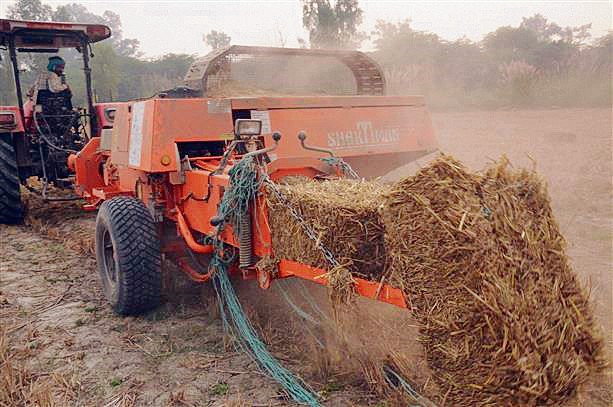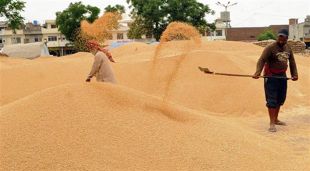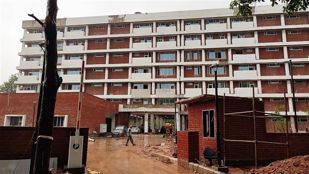
PPCB claims that only 1.7 per cent farmers have burnt crop residue in Jalandhar. File
Deepkamal Kaur
Jalandhar, November 8
If the figures released by the Punjab Pollution Control Board (PPCB) are to be believed, only 1.7 per cent of farmers who had sown paddy in Jalandhar have burnt crop residue, while the remaining 98.3 per cent managed it through eco-friendly techniques.
According to the available data, the total number of farm holdings in Jalandhar is approximately 46,600 and more than 800 farm fires have been reported to date.
Officials of the Agriculture Department said 10 lakh metric tonnes of stubble would be generated this season from 2.25 lakh acres under paddy, but it could be used in a limited manner as fuel in industry. Reason: Brick-kilns can only use straw pellets and there’s no unit to manufacture these in Jalandhar. No sugar mill other than Bhogpur can use stubble in its boilers. The Bhogpur mill has been given a target to use 1 lakh MT of stubble. The only biomass energy plant is located at Bir village in Nakodar, which has a capacity to use 0.5 lakh MT of straw.
There had been a huge demand for balers as more farmers preferred ex-situ management of crop residue this time. But non-availability of balers had made matters worse.
Ranjit Singh, a farmer from Phillaur, said, “The balers came in around mid-October from Malwa, but the crop was not ready to be harvested. A baler can make bales on just 40 acres per day. Had there been one to two balers available in every village, there would have been no problem at all in managing crop residue.”
“We were left with an option to either use Superseeders whose rent was high or burn stubble. Thus, marginal farmers went for the second option,” he said.
The problem in Kapurthala is even more complex as three blocks — Kapurthala, Dhilwan and Nadala — have clayey soil. “Baler was a good option for us but we failed to find one. As wheat needs to be sown within a week, we do not know how to clear stubble quickly,” said Sukhdev Singh of Bhullar Bet village.
Join Whatsapp Channel of The Tribune for latest updates.
#Doaba #Environment #Pollution #Punjab Pollution Control Board PPCB




























